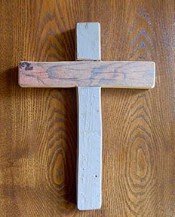St Frumentius’ Anglican Theological College:
Recruiting a new Dean, building up the faculty, equipping students for ministry
 |
| Standing on the Rock |
We were recently in Kenya, exploring partnerships with the Kenyan church and looking for a new dean for our St. Frumentius’ Anglican Theological College. The Diocese of Marsabat, Northern Kenya, under Bishop Daniel Qampicha Wario, has been reaching out to those who have not heard of Christ in the south of Ethiopia. We visited the diocese to encourage this work and to teach on mission and healing prayer. In the photo above, Grant and Qampicha are standing on the ‘pulpit’ of the first church in Elabor, Northern Kenya, during an outreach to the people of this area.
 |
| Area Assembly, Nov 24th & 25th, 2016 |
This is a photo of our St Frumentius' Anglican Theological College Chapel, during our recent, “Area Assembly” the yearly synod-like gathering of our Episcopal Area. At Area Assembly, I received this letter carried by Rev Isaac Pur. It is from the Jum-jum people. There are now only about 200 Jum-jum Christians in the world. Isaac Momma, our Mabaan-speaking priest and the regional dean of the churches in the Assosa region of Ethiopia, is now a full time student at St Frumentius' Anglican Theological College. He reached out to the Jum-jum who were in Sherkole Refugee Camp, Assosa. This work has been continued by Isaac Pur, now acting Regional Dean during Isaac Momma’s time as a student. Here is the letter they sent; unedited, yet elegant in its cry for the need for theological education.
"Our Dear Father,
As a Jum-jum congregation, we are here, ready to make our own church. But the problem is the lack of the preacher or we don’t have anyone who is well trained to preach the gospel. Therefore please we need you to help us by giving us the chances when there is second round for the theology or college.
We join the Anglican church from 2011 up to 2016 but there is no any improvement or any changes. But when you appeared, also our names appeared. Therefore we became happy and happy. And we hope everything will continuous like in this way.
So you know even in our home land we have more than 200 Christian within our tribes without any pastor or even not deacon (preacher). Therefore when you will help us we will be strong and lead our people as our heavenly Father want us to do.
Our main problem is this. Now we have those who know how to preach like Pastor Isaac Momma and Pastor Isaac Pur and so on. But maybe after the short period of time we will go back to our home land (North Sudan) and Pastor Momma will go back to his home land (South Sudan) and what will we do when we still have no pastor? We will remain as it is like before. For example, as you know, when there is no shepherd, the hyena can do what they want. And we hope you will help us to report all this to Bishop.
Second example: The son can make a lot of mistake when the father didn’t teach him properly.
That is all.
~ Please Pray with us ~
 |
| ~ With thanksgiving for the ordination of three priests and five deacons at Area Assembly Nov 24, 2016 |
~ For a new Dean of St Frumentius' Anglican Theological College and for Bishop Grant as he functions as Acting Dean
~ For Egypt, especially as the church has to endure more suffering at the hands of terrorists
~ For the Reverend Sammy Shehata, bishop elect for North Africa (Algeria ,Tunisia and Libya) as he prepares for his consecration February
~ For a new congregation which is developing among the Tama-Koi people and for representatives to the Koma and Shurma people expressing interest in the gospel.
~with thanksgiving for new partnerships developing with the church in Kenya and Djibouti
~ For the Mothers' Union as they move towards a fully African-led Leadership Training Program
~ For peace and stability in Ethiopia and the Horn of Africa
 |
| Peter Tut Chol |
Peter Tut Chol will be Priest in charge of Holy Comforter Anglican Church, in the Pilwal Mission Centre, supervised by the Rev Peter Ghak
Simon Taidor will be Priest in charge of the All Saints Anglican Church Mission Centre in Nininyang with its eight churches
Stephen Munye will be Priest in charge of The Bethlehem Anglican Mission Centre, Pinyudu Refugee Camp with its four churches
 |
Omot Ogud |
Omot Ogud, will serve as the Deacon in charge of the Bethlehem Anglican Mission Centre in Abobo with its seven churches
Stephen Choul, will serve as the Deacon in charge of St Peter’s Anglican Church Mission Centre in Matar with its ten churches
 |
Stephen Choul |
 |
Daniel Wuor Tap |
Daniel Wuor Tap will serve as Deacon in charge of the five churches of Jewi the refugee camp, supervised by the Rev Peter Kuel of St Luke’s, Gambella
Joseph Khon will serve as the Deacon in charge of New Life Anglican Church in the Lare Mission Centre, supervised by the the Rev Simon Ker of St Paul’s Anglican Church
 |
Joseph Khon |
Gabriel Tut Puok will serve as Deacon in charge of Church of Christ Anglican Church in the Pinyudu refugee camp, supervised by the Rev Paul Pouk of Jesus Light of the World Anglican Church
 |
Gabriel Tut Puok |






















